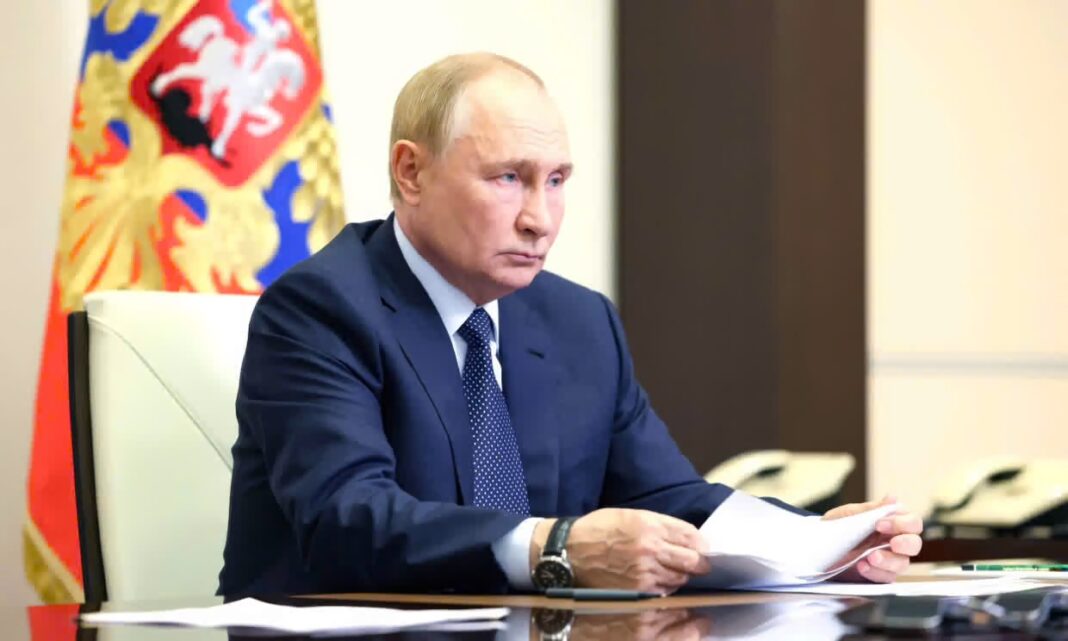Putin Warns NATO of Direct Involvement
Vladimir Putin has issued a stark warning to NATO. He stated that any move allowing Ukraine to use Western-supplied long-range weapons against targets inside Russia would fundamentally change the conflict. According to Putin, such actions would mean that NATO countries, including the US and European nations, are directly at war with Russia.
The Russian president made these comments while addressing a state television reporter, emphasizing that if NATO gives the green light for Kyiv to launch attacks within Russian borders, Moscow would respond accordingly. Putin explained that this would change the nature of the conflict and force Russia to make “appropriate decisions” in response to the new threats it would face.
US and UK Discuss Lifting Restrictions
Putin made his comments as US and UK leaders were talking about changing the rules on how Ukraine can use Western weapons. US Secretary of State Antony Blinken and UK Foreign Secretary David Lammy met with Ukraine’s President Zelenskiy in Kyiv to talk about how the war is changing.
Blinken suggested that the US might soon let Ukraine use long-range weapons from the West to hit targets inside Russia. He said the US has always been open to changing its approach as the war goes on. Blinken and Lammy will tell their leaders, Joe Biden and Keir Starmer, about these talks.
Impact of Iranian Ballistic Missiles
One significant development influencing these discussions is the recent revelation that Iran has been supplying ballistic missiles to Russia. Both Washington and London view this as a dangerous escalation in the conflict. Lammy noted that this shipment has shifted strategic thinking in both capitals, suggesting that the situation on the ground is now more perilous than ever before.
“The escalator here is Putin,” Lammy said, adding that Russia’s decision to obtain missiles from Iran, and to align with countries like North Korea, has forced the West to reassess its approach to supporting Ukraine. He urged China not to align itself with what he called “a group of renegades,” highlighting the potential for further destabilization.
Long-Range Missiles May Be in Play
While the discussions between Blinken, Lammy, and Zelenskiy are ongoin. Thereare already indications that a decision has been made to allow Ukraine to use British-supplied Storm Shadow cruise missiles on Russian targets. This move has not yet been publicly confirmed, but sources suggest it could be officially approved soon.
Storm Shadow missiles have a range of over 300 miles, significantly increasing Ukraine’s ability to strike deep into Russian territory. If confirmed, this would represent a major shift in how Western powers are supporting Ukraine’s military efforts.
Biden and Starmer’s Strategic Talks
On Friday, Joe Biden and Keir Starmer are expected to meet in Washington, DC, where the war in Ukraine will be a key part of their wide-ranging foreign policy discussions. British officials have suggested that the meeting will focus more on long-term strategy. Than any other single weapon system.
Both leaders are seeking ways to end the conflict. But without conceding ground to Russia or allowing Putin to gain an advantage. The talks will aim to strike a balance between supporting Ukraine and preventing further escalation. It could could draw NATO directly into the war.
Risks of Escalation
Putin’s warning underscores the high stakes involved in any decision to allow Ukraine to use Western-supplied long-range weapons. While Kyiv has been pushing for the ability to strike deeper into Russia. The risks of escalation are clear. A move by NATO to remove its restrictions could lead to a more direct confrontation between Russia and Western powers. Thus potentially turning the conflict into a broader war.
For now, much depends on the decisions made in Washington, London, and other NATO capitals. As the conflict continues to evolve, the line between indirect support for Ukraine and direct involvement in the war is becoming increasingly blurred.

